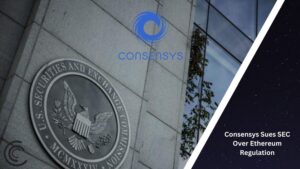Key Takeaways:
- The Pakistani government has formed three sub-committees to discuss the country’s cryptocurrency future. The committees will evaluate all aspects of the cryptocurrency industry and make proposals on Pakistan’s cryptocurrency legislation.
- These panels will base their reviews on everything related to the cryptocurrency industry, along with its legal status and prohibition. The referrals will be sent to a committee chaired by the finance secretary.
- The first panel was established under the chairmanship of Pakistan’s legal secretary. The State Bank of Pakistan (SBP), the Federal Investigation Agency (FIA), and the Pakistan Telecommunication Authority (PTA) will be present, among others.
The federal government has formed three subcommittees to shape the fate of the cryptocurrency sector in the country.
These panels will make their guidelines after examining all elements of the cryptocurrency business, including its legal validity and a prohibition on it. These subcommittees were constituted during a meeting presided over by the federal finance secretary to judge whether or not to legalise the cryptocurrency business.
The first panel was established with the chairmanship of the law secretary. The sub-committee will include representatives from the State Bank of Pakistan (SBP), the Federal Investigation Agency (FIA), and the Pakistan Telecommunication Authority (PTA), among others.
The Pakistan State Bank has long resisted cryptocurrency. SBP Governor Reza Baqir stated in March that there are multiple abuses [of cryptocurrency], such as human rights violations, human trafficking, money laundering, and other shady practices. In February, the governor admitted that the risks of cryptocurrency “far outweigh the benefits.”
Nonetheless, despite official warnings, cryptocurrency adoption in the country has hit a record high. Pakistanis own more cryptocurrency than the country’s foreign reserves. These individuals have amassed wealth as a result of the lack of a structure for cryptocurrency regulation.
As per a Chinalysis report, Pakistan is the third-most-adopted cryptocurrency in the world.
The nation faces a remarkable 711 percent growth over the last year due to the rise in investor confidence in major coins such as BTC. It now ranks third, trailing only India and Vietnam.
As the popularity of cryptocurrencies grows, so does the need for these assets to be regulated. The chairman of Pakistan’s FPCCI has urged the government to monitor and control cryptocurrencies in order to maintain their value and prevent money laundering. When it comes to designing those regulations, he wants the government to follow acceptable organizations’ standards, such as the IMF’s.
The other two sub-committees were formed under the chairmanship of SBP Deputy Governor Saima Kamal. Members of the panels will include representatives from the Ministry of Information Technology, the Securities and Exchange Commission of Pakistan, the Pakistan Tourism Board, and others.
However, at this phase, the first committee would make the choice whether cryptocurrency should be banned as accredited authorised tenders or digital property. The panel’s recommendations will be based on the applicable legal guidelines. The second subcommittee’s recommendations will almost certainly be based on imposing an immediate ban on cryptocurrency, and this could have long-term consequences.
It would also consider whether a ban on cryptocurrency would cause Pakistan to fall behind in the global race for technological progress.
The subcommittees will compile their recommendations and send them to a committee chaired by the finance secretary, after which recommendations on the long run of cryptocurrency will most likely be ready.
The Crypto Context in the Islamic Republic:
The constitutionality of cryptocurrencies has long been a source of controversy in the Islamic republic. Many cryptocurrency analysts claim that controlling cryptocurrency use is critical for countries like Pakistan that are actively trying to confront criminal activities like money laundering and terrorist financing.
According to reports, the Federal Investigation Agency (FIA) requested that Pakistan’s Telecommunication Authority block over 1,600 cryptocurrency websites in January. The committee’s discussion will have a significant impact on Pakistani citizens who have heavily invested in cryptocurrency.
Moreover, the country’s largest bank, Bank Alfalah, has advised its users to reduce trading cryptocurrencies through its systems. At this point, it is difficult to anticipate where the cryptocurrency market in Pakistan will go.
In January, the federal government and its central bank petitioned a provincial court to prohibit the use of cryptocurrencies. The outcomes are unknown, but the government can profit from legislating cryptocurrencies by acquiring access to data on cryptocurrency transactions. Government entities can use the data to detect money laundering and other illegal activities, as well as to provide a framework for resolving cryptocurrencies-related issues.











